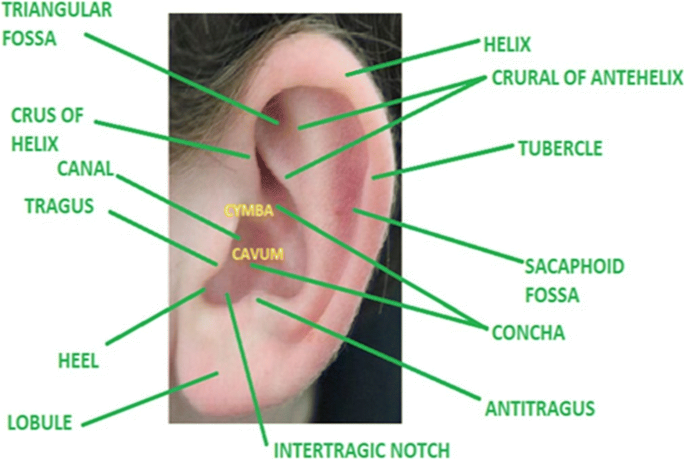Motivation
I’m writing this because I believe it’s better for people to have more access to information than less access to it. People constantly judge others on looks, family background, and wealth and often in a bad way. Making people pay attention to ears doesn’t hurt.
It’s a choice whether or not to treat people unequally. We love pets even though they are not the same as humans. But that’s different from associating with different people due to personal needs. Smart people need a way to find each other. People can look at their leaders’ ears to get a gauge of their potential all while knowing that intelligence is not synonymous with virtue.
One can have intelligence and be a mass murderer. One who lacks intelligence can care about their community, do a lot for them, and be an outstanding person. I am not making a value judgment on intelligence for human morals.
Foldy Ears
It’s easier if I give examples.






Not Foldy Ears
This is the guy who attacked Salman Rushdie.

Prisoner in El Salvador.

These two people side by side are a good comparison. The one on the left is foldy while the one on the right is not.

Rationale
You’re probably a bit intrigued but also doubtful. That’s fair; I won’t say having foldy ears is 100% an indicator of intelligence, nor does the lack of them preclude intelligence. But in my observations of people I know in real life, people I see on the street, and videos of people online, it does seem like a recurring theme. Like the ears of people I know who study difficult topics versus people who didn’t.
It’s not an ethnic thing. All ethnic groups can have the inside “fork” (aka antihelix). It’s not just the size. Sometimes people have a developed fork but big ears or a largeish gap between the fork and the helix (outer ridge). This was the best image of a ear I could find. A lot of pictures don’t include the foldy parts, which reminds me of this post about dead butterflies.

I think the origins have to do with brain gyrification in utero, which has to do with materal nutrition status. It’s known that severe stress and lack of energy to the mother causes defects in the child when born.
It’s been studied that increased brain gyrification is associated with an increase in both fluid intelligence (problem solving, reasoning) and crystallized intelligence (use of knowledge, vocabulary). Alcohol decreases gyrification. Prenatal alcohol exposure also leads to ear abnormalities.
The way I see it, a certain amount of energy is needed for the growing child to develop more detailed and intricate structures in the brain. The ear, being a “foldy” organ, likely progresses in the same way as the brain. Ear smoothness is likely linked to brain smoothness, but I’m only making a transitive link. I haven’t found any studies on this.
It’d worth looking at plants to see if a lack of energy in plants leads to lack of detail in them. Are plants with more energy able to grow more detailed, fractal structures? Is there an equivalent of “smooth ears” for plants?
Smoother brains versus foldy brains and how it’s like to talk to them
This is all speculation. I think they may feel things stronger and be less able to understand repercussions, so that is why violent criminals I’ve seen tend to have smooth ears. I think they are less able to “simulate” other worlds and people. That is, they can’t imagine what something would be super well, how other people would perceive things, and so on. There are layers to a conversation, implications, mental models of technical topics, etc. which they are less able to intuitively grasp.
When I talk to someone who has a certain mental “level” and has done the reading and thinking about the world to use it, it becomes a conversation with so many tangents and our communication is limited by how fast we can speak. However, there are people with “foldy” ears I don’t have good conversations with probably because they haven’t developed their knowledge yet. But the potential is there. There are people who have studied lots of things but when we have conversations it isn’t the same, which I’ve found when talking to some older academics but I can’t determine whether it’s due to ear foldiness or age differences.
What to do with this knowledge?
Well, for one, we could rethink education. Education might be mainly downstream of nutrition. Nobody expects a child born with mental disabilities to get smarter if you teach them more. They run into limits of memory, reasoning, connections, and so on. It would give us a “root cause” to attack: increase the maternal nutritional status. (this goes into a debate about “what is healthy food”, which I am also writing my thoughts on. It is possible there is scarcity as far as “healthy food” goes.)
If you see someone with foldy ears you can start a conversation with them. You might be able to tell that they’re intelligent, and if you like intelligent conversations it’ll be a big boon to your experiences.
It’s possible that even if you don’t have foldy ears, you might want a leader who has foldy ears because they’d be a more capable leader, as long as they have good morals. Or you might want a dumber leader because of some personal interest. Putting this information out into the world doesn’t change how people are and act; it just gives more information by which people can do things. And it might be a better indicator than verbal tests that people like to give.
I am worried that this information will lead to discrimination against people with smooth ears. But people already discriminate on the basis of age, sex, ethnicity, and so on. Maybe those with smooth ears will get tired of being oppressed and massacre the foldy ears, like how there was a “two-nostril test” between the Hutus and Tutsis. Like I said, I’m not 100% set on this theory, but I will keep making observations and try to understand the world.
It’d be a slippery slope if we start looking at physical features to determine morality though. But people do want someone they can trust. Ah, problem is so hard.
A hypothetical
Imagine that you know that you aren’t so smart. It’s difficult to do well in class. Then you hear of this theory, go check your ears in the mirror, and find that your ears are not so foldy. Maybe they’d feel relief at understanding why things are the way they are. They could then endeavor to do better for their kids and the next generation armed with the knowledge of prenatal nutrition and its benefits.